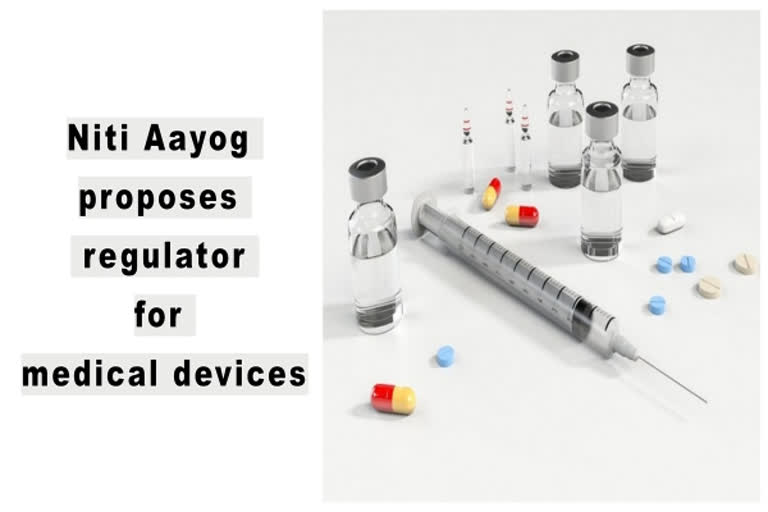Hyderabad: To the ailing, medical treatment and administration of medication must provide timely relief but should not worsen the condition. In the event of unfortunate incidents resulting from medical equipment in India, the victims cannot demand compensation. But, the recent NITI Aayog draft bill states that the patients who got injured or suffered side effects from unsafe medical devices can demand compensation up to Rs 1 crore.
Differing with the Health ministry’s suggestion that medical equipment must be considered drugs, NITI Aayog proposed a new regulatory mechanism. All medical devices including imported ones will fall under the Medical Devices (Safety, Effectiveness, and Innovation) Bill, 2019, which aims at establishing a new system.
As a result, the scope of the Central Drugs Standard Control Organization (CDSCO) would shrink. The Indian medical devices industry is estimated to grow to Rs.50,000 crores. The newly proposed system which includes medical equipment testing units, laboratories, and guidelines enforcement must play a key role in streamlining the market which is estimated to grow to Rs.68,000 crore by 2022.
Till now, the CDSCO’s negligence in controlling the medical devices and drugs has led to many problems. Countries like China have been taking stringent measures to keep a check on faulty medical products. To execute similar measures here, concrete instructions and effective enforcement of directives are imperatives.
Two years ago, the joint operation of INTERPOL, World Customs Organization (WCO) with authorities from 123 countries led to the seizure of hundreds of crores worth illicit and counterfeit medicines and equipment. Around 3,000 websites were shut down. The seizure of innumerable duplicate syringes, contact lenses, hearing aids, surgical instruments illustrated the dire state of the public health system.
Repeated blows to Johnson & Johnson, the leading medical device producer shows the collective awareness of people in countries like the USA. Last month, the multinational company had to pay Rs 56,000 crore as penalty for its off-label prescription of a drug called Risperdal.
Currently, it is facing allegations over the discovery of Titanium in the company’s baby powder product. The company might have to pay a compensation of Rs.1,40,000 crore as more than 1 lakh claim suits have been filed.
Setting up a regulatory body that investigates a violation of safety and levies suitable penalties can bring about an improvement of quality standards in India. NITI Aayog draft bill, which proclaims to safeguard public health through safe medical devices must effectuate the said changes. Top companies who are paying heavy penalties in first world countries are getting away with nominal punishments in our country. To avert this situation, the rules must be strengthened.
After the World Health Organization’s (WHO) revelation in 2010 that 8 per cent of medical equipment worldwide is fake, there is a need for speedy preventive measures owing to the fact that the danger is continually on the rise. Production of duplicate medicines nationwide is a bigger peril.
The Associated Chambers of Commerce and Industry (ASSOCHAM) reported that 25 per cent of the drugs in the Indian market is illicit and that the illegal pharmaceutical drug trade is valued at Rs 30,000 crore.
Counterfeit antibiotics, malaria drugs, family planning medicines, and pain killers are flooding the market. Experts have been warning for the last 15 years that the cheaply priced tablets, capsules, injections, and inhalers are fraudulent.
Two years have passed since the National Drug Survey found out the substandard parameters right from the time of drug manufacturing to its usage. Government hospitals in some of the states are administering second-rate medicines to their patients. This shows the battered shape of public health in India. Messing with people’s lives is no more acceptable.
Announcements to control online purchases and monitor the quality of medical products are also being made. Public health will come out of this miserable state only when medical devices and drugs come under the scanner of an effective regulatory mechanism.



